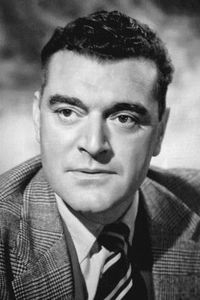Jack Hawkins made his London theatrical debut at the tender age of 12, taking on the role of the elf king in the Christmas pantomime "Where The Rainbow Ends". A mere five years later, he landed the lead role of St. George in the same play, showcasing his versatility and talent at a young age. At 18, he made his Broadway debut in the play "Journey's End", marking the beginning of his career on the Great White Way.
Hawkins' early years in the entertainment industry were marked by his marriage to his leading lady, Jessica Tandy, and his debut in the 1931 sound version of Alfred Hitchcock's "The Phantom Fiend" (1932). During the 1930s, he took his roles in plays more seriously than the films he made, a trend that would continue throughout his career.
In 1940, Jessica accepted a role in America, and Jack volunteered to serve in the Royal Welch Fusiliers, spending most of his military career arranging entertainment for the British forces in India. It was during this time that he met Doreen Lawrence, who would become his second wife after the war.
After the war, Alexander Korda advised Jack to pursue a career in films, offering him a three-year contract. Hawkins would go on to become one of the most beloved and respected actors of his time, earning the title of number one box office draw in 1954.
One of his most fortunate choices of roles was in the 1950 film "The Black Rose", where he played a secondary role to Tyrone Power, under the direction of Henry Hathaway. Jack would later recall that Hathaway was "probably the most feared, yet respected director in America, for he had a sharp tongue and fired people at the drop of a hat." Years later, after Jack's operation to remove his larynx, Hathaway went out of his way to help him get back into films, despite being himself suffering from cancer during the filming of "The Black Rose".
The 1950s saw the release of the film that made Hawkins a star, "The Cruel Sea" (1953),in which he played the captain of the Compass Rose, despite suffering from life-long seasickness. After surgery for throat cancer in 1966, Jack continued to make films, miming his lines and having his voice dubbed by either Charles Gray or Robert Rietty.
Throughout his later years, Jack's motto came from Milton's "Comus", a verse play in which he acted early in his career in Regent's Park. The lines: "Yet where an equal poise of hope and fear does arbitrate the event, my nature is that I incline to hope, rather than to fear."
















































































